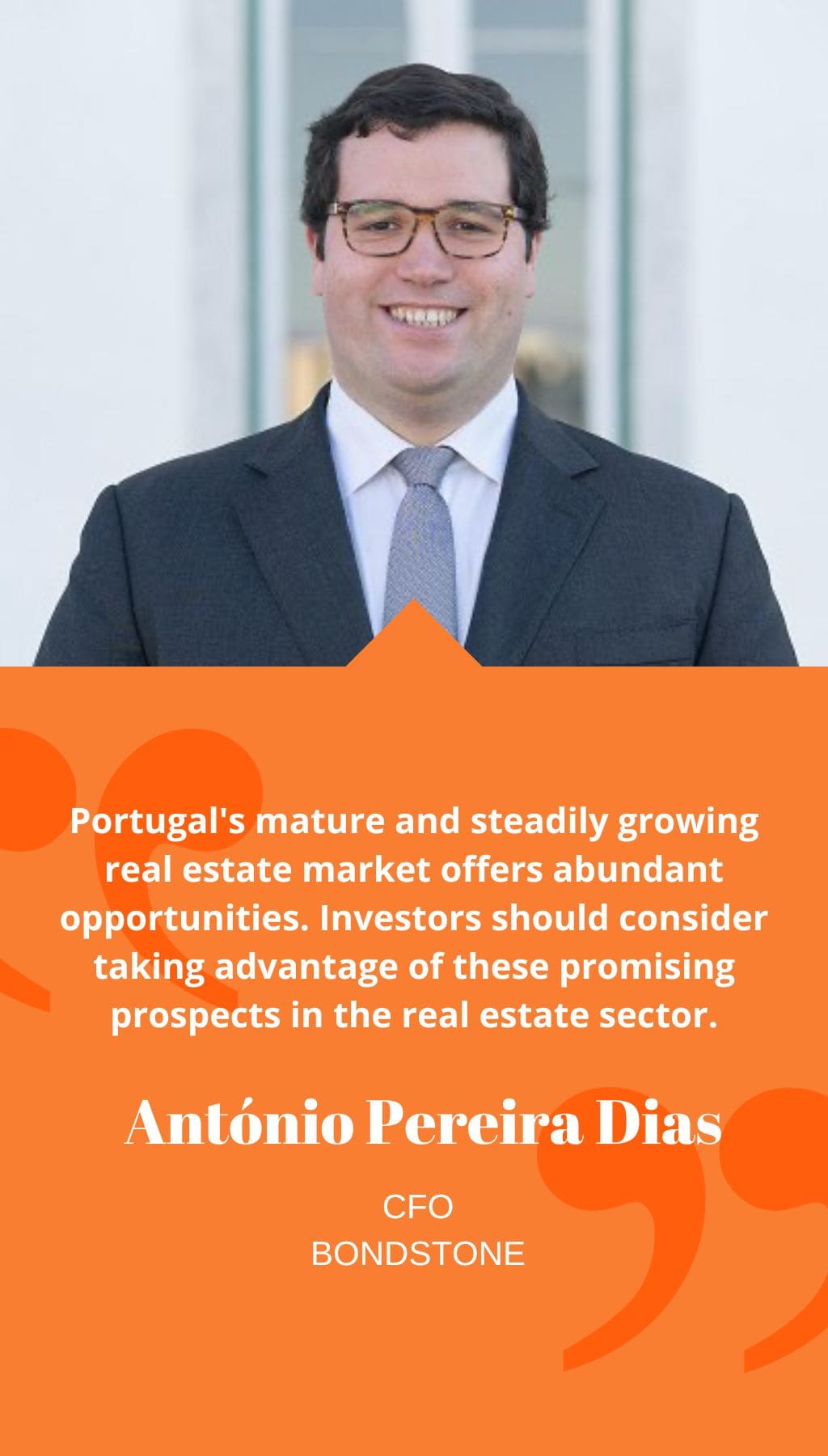
- Portugal | 25 April 2022

Could you provide an overview of Bondstone’s inception last year and the context surrounding it?
Bondstone emerged from Louvre Capital, transitioning from a high-end residential developer to a private equity real estate firm. Our strategy involves co-investing with international companies aiming to establish a local footprint alongside recognized operating partners. This targets an underrepresented segment in the fragmented Portuguese real estate landscape, cherry-picking high-yield opportunities to co-invest with international institutional investors.
Speaking of returns, what is the average percentage returns projects in Portugal offer currently?
We typically focus on opportunistic and value-add investments, looking for Internal Rate of Return (IRR) above 15%. During the pandemic, investors opted for value reserves, influencing interest rates. Previously, a 17% IRR was the standard, but now a 12% return is becoming attractive, although we maintain a rigorous project screening process.
What key criteria guide your project screening process?
We analyze three critical elements: acquisition price, project costs, and marketability, especially the market’s liquidity. Though we can’t control exit prices, our in-house asset management helps mitigate risk and cost control. By quantifying these factors and balancing them against project risks, we optimize our risk-reward ratio.
There has been a lack of market liquidity in Portugal, particularly in commercial space. How do you foresee this evolving?
Post-2008 crisis, real estate investments halted for a decade, leading to a significant lack of new constructions. Currently, the demand for new housing and industrial projects is substantial. However, liquidity remains relatively low due to a reduced number of projects on the market, likely to improve in the next few years.
While invested in both residential and commercial projects, where is Bondstone’s current focus?
We are asset-class agnostic but presently concentrating on multifamily dwellings in large cities, built-to-rent schemes, and logistics/light industrial projects. Other assets like retail, offices, and hotels are currently outside our radar, yet we keep an eye out for compelling returns. Our current focus primarily revolves around residential and industrial segments.
Do you anticipate the changes in the 2022 Golden Visa policy affecting your work?
Fortunately, our sold residential projects would not be impacted. Although the Golden Visa scheme changes, tourist apartments and real estate investment funds remain viable avenues for foreign citizens seeking a Golden Visa in Portugal.
What concerns have international investors expressed recently? Does the current political crisis pose any issues?
Investors prioritize a positive investment climate with stability, fiscal certainty, and legal security, regardless of political agendas. The ongoing political turmoil may not significantly impact economic growth, yet concerns about the 23% VAT burden, planning uncertainty, and prolonged licensing processes persist.
Looking ahead, what key objectives is Bondstone pursuing in the next two to three years?
Our primary aim is to establish ourselves as the most prominent private equity real estate investor in Portugal, expanding our assets under management significantly. We aim to attract international investors, recognizing the potential in Portugal’s real estate market.
Any parting message for potential investors eyeing the Portuguese market?
Portugal’s mature and steadily growing real estate market offers abundant opportunities. Investors should consider taking advantage of these promising prospects in the real estate sector.














